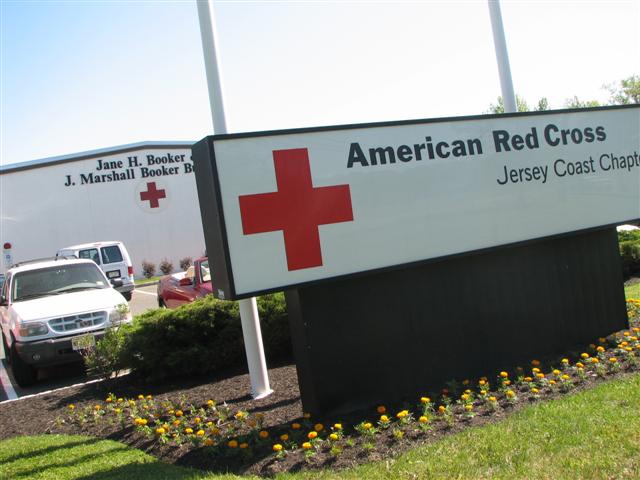Shelters open; blood donors still needed
WASHINGTON, February 2, 2011 — The American Red Cross is on the ground in 19 states, offering food, comfort and a safe place to stay to people affected by the massive winter storm which has buried the country in ice and snow from the Rocky Mountains to Maine.
As of midnight last night, 73 shelters were open in nine states with additional shelters on standby as the storm system moves to the Northeast. To find an open Red Cross shelter, people can visit www.redcross.org and click on ‘Find a Shelter,’ or call 1-800-RED CROSS (1-800-733-2767). People can also contact their emergency management office for help locating a shelter.
In Chicago alone, more than 360 people spent the night in Red Cross shelters. Many were motorists stranded by the storm. In Tulsa, Red Cross disaster workers housed almost 70 people overnight who could not make it home due to the storm. Five Red Cross disaster warehouses are on alert, ready to ship supplies to where they are needed to help people in the path of this huge winter storm.
To help people affected by this winter storm and thousands of disasters in this country and around the world, visit www.redcross.org, call 1-800-RED CROSS, or text the word REDCROSS to 90999 to make a $10 donation. Contributions may also be sent to someone’s local Red Cross chapter, or to the American Red Cross, P.O. Box 37243, Washington, DC 20013.
Blood Donors Still Needed
The number of blood donations gone uncollected due to winter storms rose to nearly 23,000 overnight, with more blood drive cancellations expected as the storm moves toward New England. The Red Cross urges people who are eligible to schedule an appointment to give blood now.
People can schedule their donation by calling 1-800-RED CROSS or visiting www.redcrossblood.org. All blood types are needed, but there is a special need for donors with O-Negative, A-Negative and B-Negative blood. To give blood, someone must be 17 years of age or older (16 with parental permission in some states), weigh at least 110 pounds and be in generally good health. High school students and other donors 18 years of age and younger also have to meet certain height and weight requirements. Individuals should bring their Red Cross blood donor card or other form of positive ID when coming to donate.
Winter Storm Safety Tips
If someone has to leave home and go to a shelter, they should remember to bring prescription and emergency medications, extra clothing, pillows, blankets, toiletries, important documents and other comfort items. They should remember items needed for infants and children, such as diapers, formula, and toys, along with any special things for family members who are elderly or disabled.
If possible, people should stay inside and avoid unnecessary travel. The Red Cross offers these steps people can take to stay safe and warm:
• Do not use stoves or ovens to heat the home.
• Place space heaters on a hard, level, nonflammable surface. Do not put space heaters on rugs or carpets, near bedding or drapes, and keep children and pets away.
• Turn off space heaters or extinguish the fireplace before going to bed or leaving home.
• Keep all flammable materials such as newspapers, matches, bedding, clothing, carpets and rugs at least three feet away from heat sources such as space heaters, fireplaces and stoves.
If someone must go outside, they should wear layered lightweight clothing to stay warm. Gloves (or mittens) and a hat will prevent loss of body heat. Covering the mouth will protect the lungs. Other safety tips include:
• Wear waterproof, insulated boots to keep feet warm and dry and to maintain footing in ice and snow.
• If shoveling snow, take frequent breaks and stay hydrated. Avoid overexertion.
• Avoid traveling by car in a storm, but if someone must be out on the roads …
o Carry a Disaster Supplies Kit in the trunk.
o Keep the car's gas tank full for emergency use and to keep the fuel line from freezing.
o The traveler should let someone know where they are going, the route being taken and expected arrival time. If their vehicle gets stuck along the way, help can be sent along the predetermined route.
For more information on how to stay safe and warm during this latest onslaught of winter, visit www.redcross.org.
About the American Red Cross:
The American Red Cross shelters, feeds and provides emotional support to victims of disasters; supplies nearly half of the nation's blood; teaches lifesaving skills; provides international humanitarian aid; and supports military members and their families. The Red Cross is a charitable organization — not a government agency — and depends on volunteers and the generosity of the American public to perform its mission. For more information, please visit www.redcross.org or join our blog at http://blog.redcross.org.
You can help people affected by disasters like winter storms, as well as countless crises at home and around the world, by making a donation to support American Red Cross Disaster Relief. Your gift enables the Red Cross to prepare for and provide shelter, food, emotional support and other assistance in response to disasters. Visit www.redcross.org or call 1-800-RED-CROSS. Contributions may also be sent to your local American Red Cross chapter or to the American Red Cross, P.O. Box 37243, Washington, DC 20013.
skip to main |
skip to sidebar
VIEW OUR PHOTOS ON FLICKR
www.flickr.com
This is a Flickr badge showing items in a set called Red Cross Honors Veterans at AristiCare in Whiting. Make your own badge here.
.jpg)